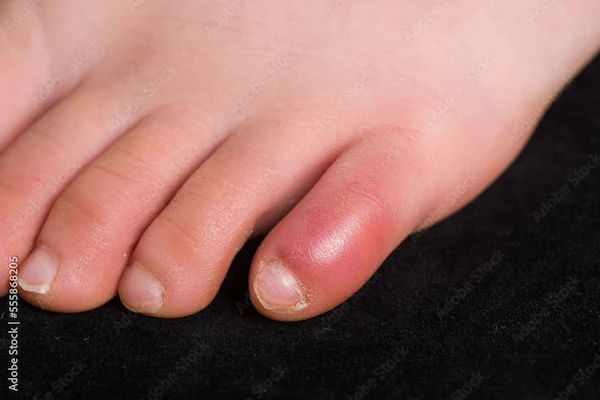Calciums Role in Bone and Dental Health
Calcium is essential for strong bones and healthy teeth. Adequate calcium intake supports bone density, prevents osteoporosis, and maintains dental strength throughout life.

Written by Dr. Shaik Abdul Kalam
Reviewed by Dr. Rohinipriyanka Pondugula MBBS
Last updated on 21st Aug, 2025

Introduction
Calcium is one of the most essential minerals in our body, playing a crucial role in keeping our bones and teeth strong. It also supports muscle function, nerve signalling, and heart health. However, many people don’t get enough calcium in their diet, which can lead to weak bones, dental problems, and other health issues.
In this article, we’ll explore why calcium is so important, how it benefits bone and dental health, and what you can do to ensure you’re getting enough of it.
Why Is Calcium Important?
Calcium is the primary building block of bones and teeth—about 99% of the body’s calcium is stored in them. The remaining 1% circulates in the blood and helps with:
Muscle contractions (including heartbeat)
Nerve signalling (helping your brain communicate with the rest of your body)
Blood clotting (preventing excessive bleeding)
Hormone regulation
When your body doesn’t get enough calcium from food, it starts taking calcium from your bones, weakening them over time. This can lead to conditions like osteoporosis (brittle bones) and dental problems such as tooth decay and gum disease.
How Calcium Affects Bone Health?
Here’s how calcium affects bone health:
1. Builds Strong Bones in Childhood & Adolescence
During childhood and teenage years, bones grow rapidly. Adequate calcium intake ensures proper bone development, reducing the risk of fractures and deformities later in life.
2. Maintains Bone Density in Adulthood
After age 30, bone mass starts declining slowly. Calcium helps slow this process, keeping bones strong and reducing the risk of osteoporosis—a condition where bones become weak and prone to fractures.
3. Prevents Osteoporosis in Older Adults
Postmenopausal women and older adults are at higher risk of osteoporosis due to hormonal changes and reduced calcium absorption. A calcium-rich diet, along with vitamin D (which helps absorb calcium), can help maintain bone strength.
How Calcium Affects Dental Health?
Here’s how calcium affects dental health:
1. Strengthens Tooth Enamel
Teeth are made up of hydroxyapatite, a mineral that contains calcium and phosphate. A calcium-rich diet helps maintain strong enamel, protecting teeth from decay and cavities.
2. Supports Jawbone Strength
The jawbone holds teeth in place. If calcium levels are low, the jawbone weakens, increasing the risk of tooth loss and gum disease.
3. Prevents Gum Disease
Calcium deficiency can lead to periodontal disease, where gums become inflamed and pull away from teeth, causing infections and tooth loss.
Symptoms of Calcium Deficiency
If your body lacks calcium, you may experience:
Frequent bone fractures (even from minor falls)
Muscle cramps and spasms
Numbness or tingling in hands and feet
Weak, brittle nails
Tooth decay and gum problems
Fatigue and dizziness
Severe deficiency can lead to osteoporosis and dental issues like loose teeth and receding gums.
Health Topic Carousel:
Lab Test: Calcium Test
Text: Check Your Calcium Levels Here
How Much Calcium Do You Need?
The recommended daily intake varies by age:
Age Group
Calcium Requirement (mg/day)
Infants (0-6 months)
200
Children (1-3 years)
700
Children (4-8 years)
1,000
Teens (9-18 years)
1,300
Adults (19-50 years)
1,000
Women (51+ years)
1,200
Men (51-70 years)
1,000
Men (71+ years)
1,200
Pregnant and breastfeeding women also need extra calcium (1,000–1,300 mg/day).
Best Food Sources of Calcium
While dairy products are the most well-known sources, many non-dairy foods are rich in calcium:
Dairy Sources:
Milk (300 mg per cup)
Yoghurt (300–400 mg per cup)
Cheese (200–300 mg per ounce)
Non-Dairy Sources:
Leafy Greens: Spinach, kale, bok choy
Fish: Sardines, salmon (with bones)
Nuts & Seeds: Almonds, chia seeds, sesame seeds
Fortified Foods: Tofu, orange juice, cereals
Legumes: Chickpeas, lentils, black beans
Health Topic Carousel:
Doctor Speciality: Nutritionist
Text: Consult Top Specialists For A Personalised Diet
Tips for Better Calcium Absorption
Calcium alone isn’t enough—your body needs vitamin D to absorb it properly. Here’s how to maximise calcium intake:
Get Enough Vitamin D (from sunlight, fatty fish, eggs, or supplements)
Spread Calcium Intake (small amounts throughout the day are better absorbed)
Limit Caffeine & Salt (they increase calcium loss in urine)
Exercise Regularly (weight-bearing exercises like walking strengthen bones)
Avoid Smoking & Excess Alcohol (they weaken bones)
When to Consider Supplements?
If you can’t get enough calcium from food (due to lactose intolerance, vegan diet, or medical conditions), supplements may help. However, consult a doctor first, as too much calcium can cause:
Kidney stones
Constipation
Heart problems
When to See a Doctor?
If you experience:
Frequent bone fractures
Severe muscle cramps
Sudden tooth decay or gum disease
Signs of osteoporosis (height loss, stooped posture)
A doctor can check your calcium levels with a blood test and recommend the right treatment.
Conclusion
Calcium is vital for strong bones and teeth at every stage of life. By eating calcium-rich foods, getting enough vitamin D, and maintaining a healthy lifestyle, you can protect yourself from bone loss and dental problems.
If you’re concerned about your calcium levels, consult a doctor or nutritionist for personalised advice. You can also book a consultation or calcium test through Apollo 24|7 for expert guidance.
Health Topic Carousel:
Doctor Speciality: Nutritionist
Text: Consult Top Specialists




